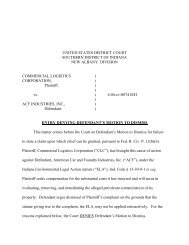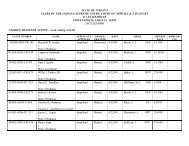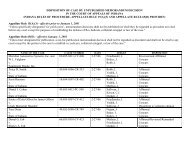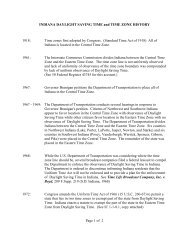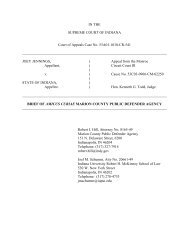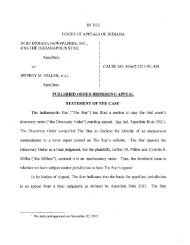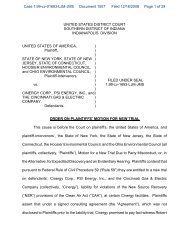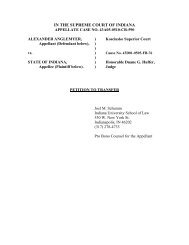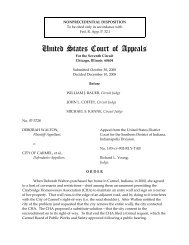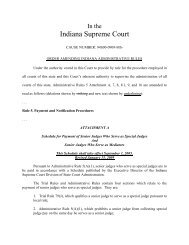Richard L. Barnes v. State of Indiana
Richard L. Barnes v. State of Indiana
Richard L. Barnes v. State of Indiana
Create successful ePaper yourself
Turn your PDF publications into a flip-book with our unique Google optimized e-Paper software.
Article 1, Section 9 <strong>of</strong> the <strong>Indiana</strong> Constitution provides: “No law shall be passed,<br />
restraining the free interchange <strong>of</strong> thought and opinion, or restricting the right to speak,<br />
write, or print, freely, on any subject whatever: but for the abuse <strong>of</strong> that right, every<br />
person shall be responsible.” We employ a two-part analysis to determine whether the<br />
<strong>State</strong> has violated the free speech protections found in Article 1, Section 9. Blackman v.<br />
<strong>State</strong>, 868 N.E.2d 579, 584 (Ind. Ct. App. 2007), trans. denied. “First, we must determine<br />
whether state action has restricted a claimant‟s expressive activity; second, if it has, we<br />
must decide whether the restricted activity constituted an „abuse‟ <strong>of</strong> the right to speak.”<br />
Id. at 584-85.<br />
Here, <strong>Barnes</strong> was arrested, charged, and convicted <strong>of</strong> disorderly conduct.<br />
Therefore, he has established that the <strong>State</strong> restricted his expressive activity. See id. at<br />
585 (citing Johnson v. <strong>State</strong>, 719 N.E.2d 445, 449 (Ind. Ct. App. 1999) (holding that a<br />
defendant‟s conviction for making unreasonable noise during a police investigation<br />
constitutes a state action restricting the claimant‟s expressive activity)).<br />
Under the second prong, we generally review the <strong>State</strong>‟s determination that a<br />
defendant‟s expression was an abuse <strong>of</strong> the right <strong>of</strong> free speech only for whether that<br />
determination was rational. Id. at 585. However, if the speech was political in nature,<br />
the <strong>State</strong> must demonstrate that it did not materially burden the defendant‟s opportunity<br />
to engage in political expression. Id.<br />
“Expressive activity is political if its aim is to comment on government action,<br />
including criticism <strong>of</strong> an <strong>of</strong>ficial acting under color <strong>of</strong> law.” Id. If an individual‟s<br />
expression focuses on the conduct <strong>of</strong> a private party, including the speaker himself, it is<br />
10



